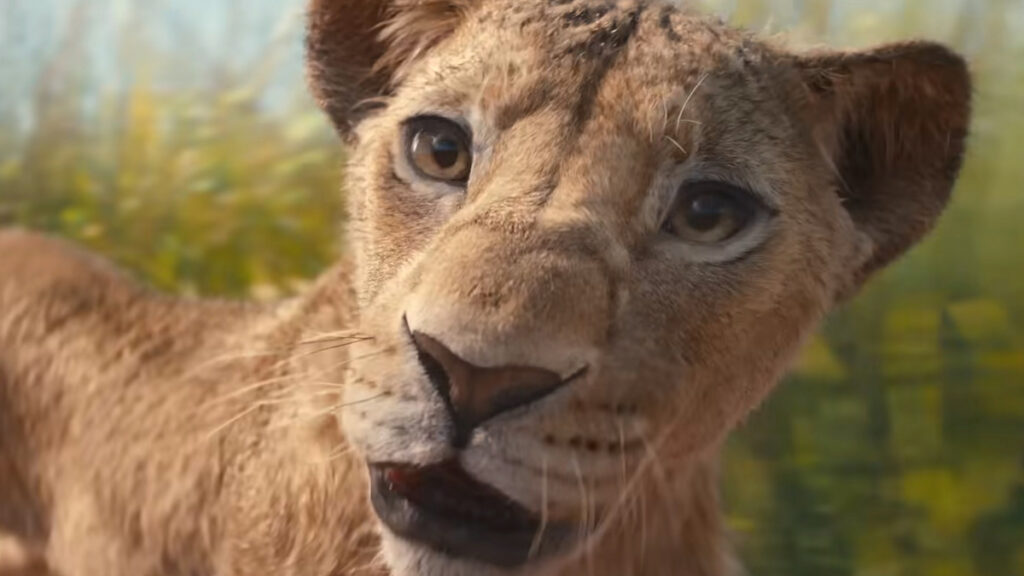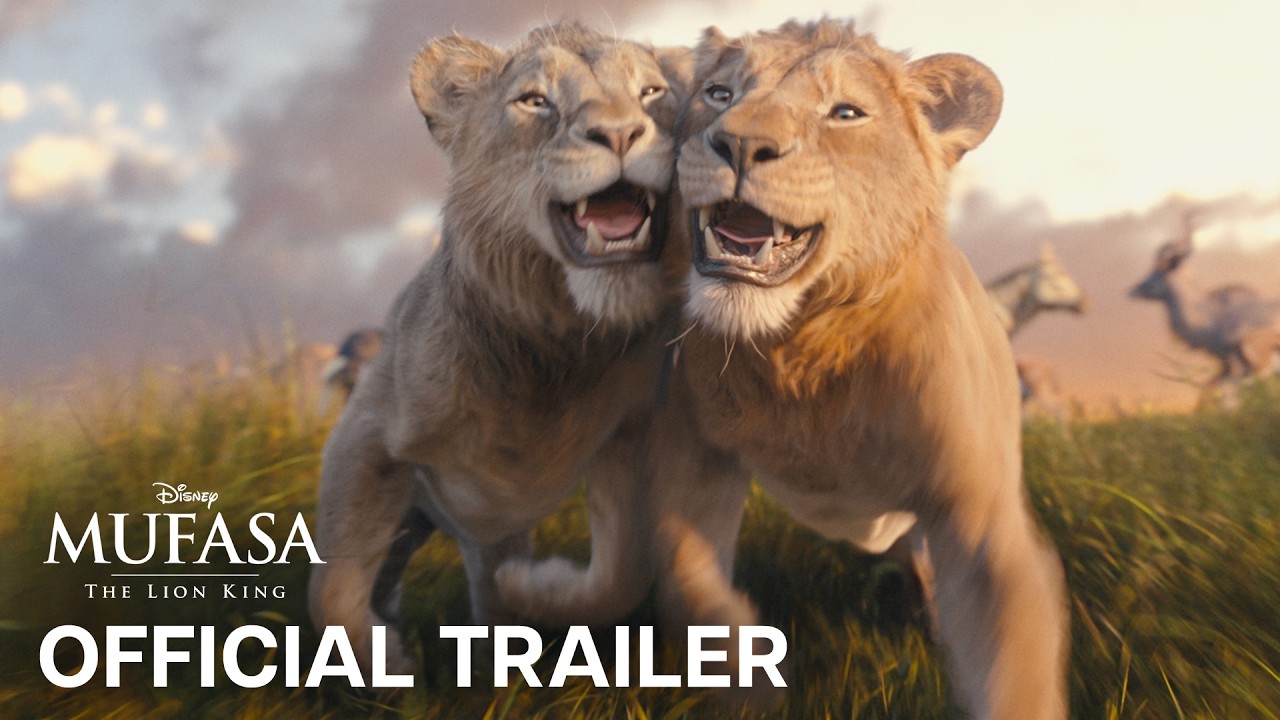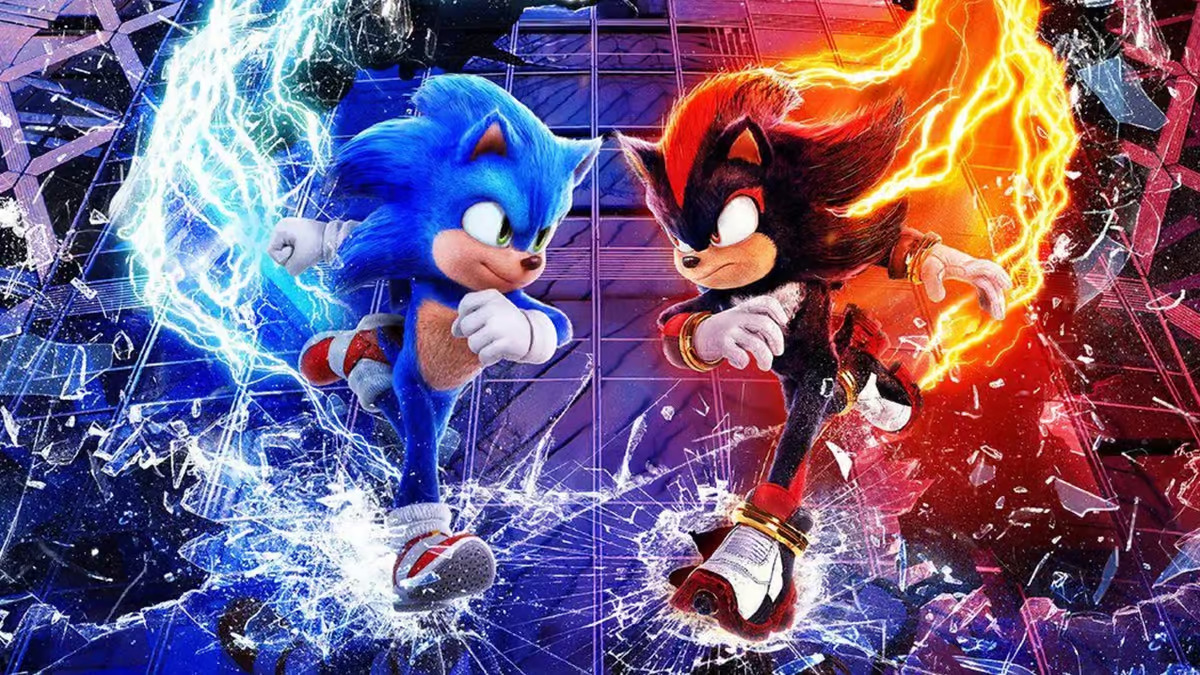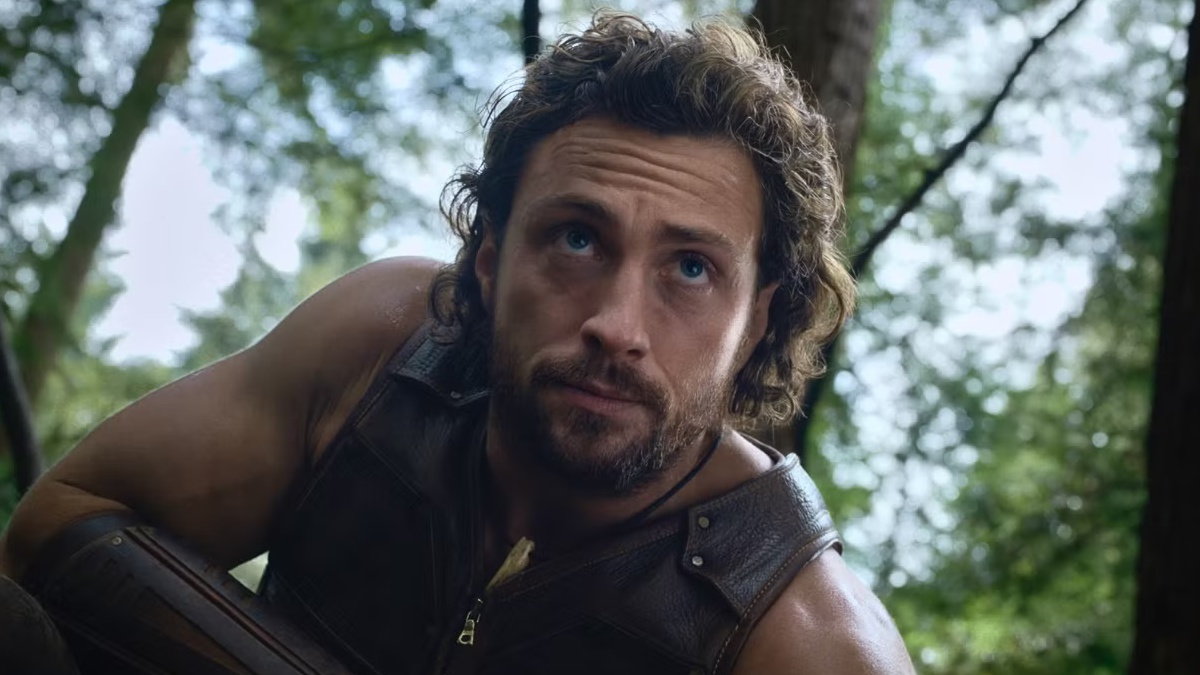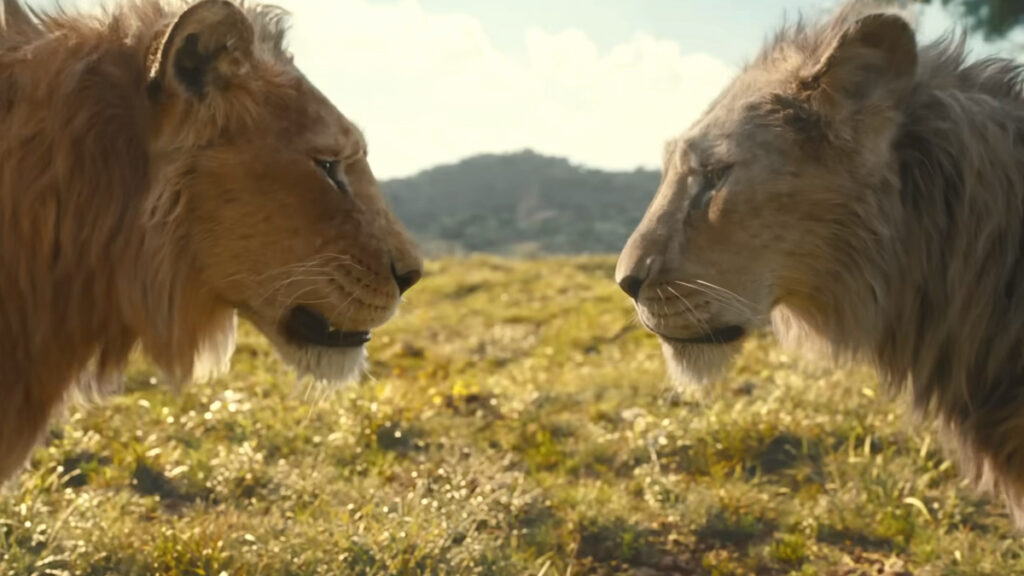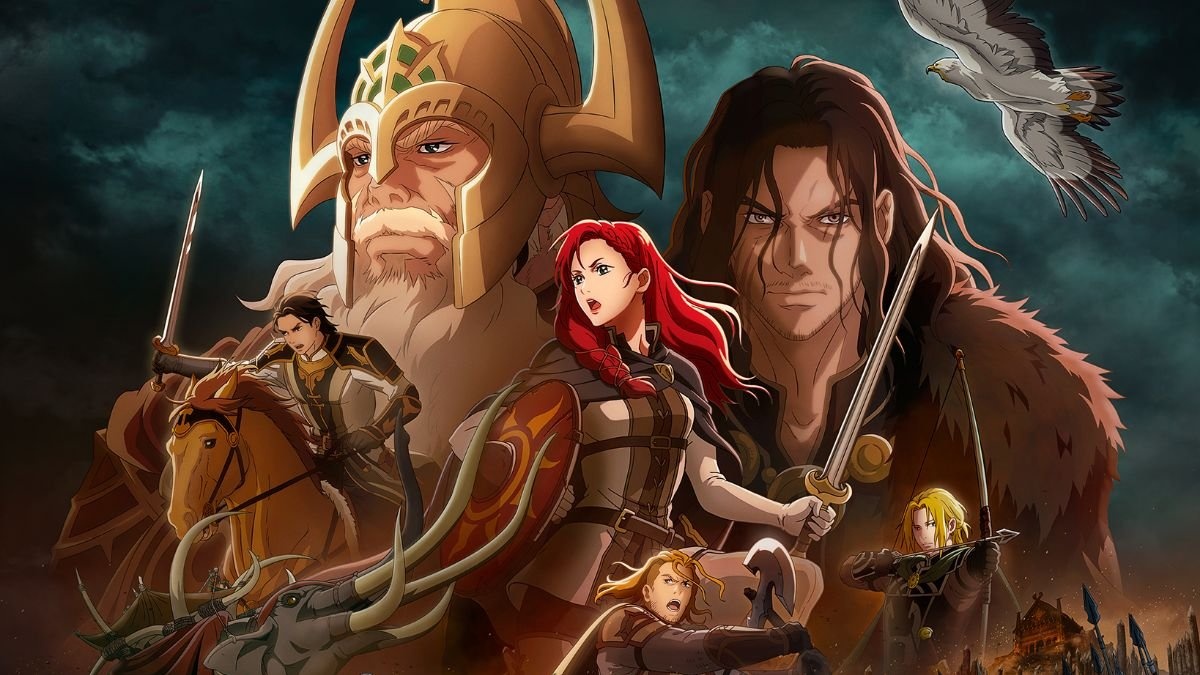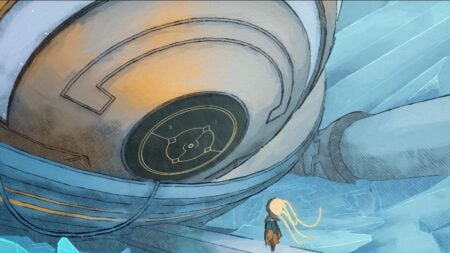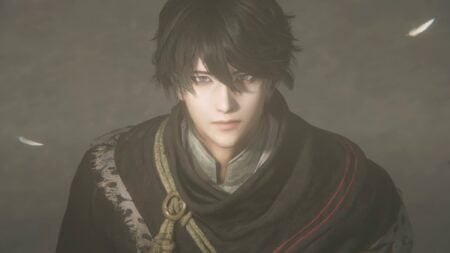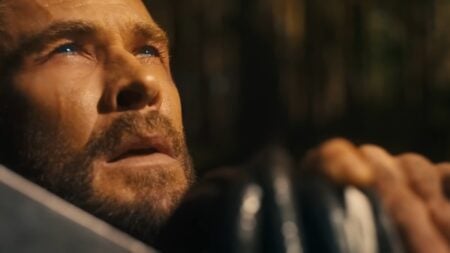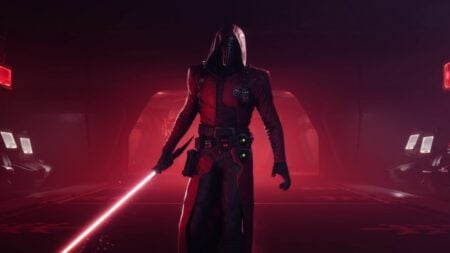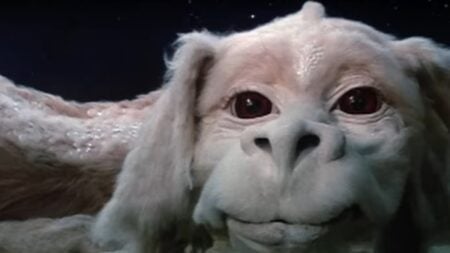Skip To...
The trouble with prequels is that anyone who has seen the original material knows exactly how the story will end up. So, the prequel needs to be entertaining enough to earn that nostalgic shot in the arm rather than resting on non-existent laurels. Mufasa: The Lion King manages to be an entertaining ride, but it doesn’t quite set itself apart from previous entries. Directed by Barry Jenkins (Moonlight), Mufasa: The Lion King tells the story of how Simba’s father, Mufasa, became king.
The film’s voice cast consists of Aaron Pierre (Rebel Ridge), Kelvin Harrison Jr. (Luce), Tiffany Boone (Hunter), Mads Mikkelsen (Hannibal), John Kani (Black Panther), Billy Eichner (Bros), Seth Rogen (This Is the End), Blue Ivy Carter, and Donald Glover (Atlanta). Mufasa: The Lion King is both a sequel and a prequel to the 2019 film, as it is framed as a story that Rafiki (Kani) is telling Kiara (Carter), Simba’s daughter. The story begins with Mufasa as a cub separated from his parents after a terrible flood. He then meets Taka, the prince of another lion pride, and becomes his adoptive brother.
Pride Goeth Before the Fall
As a prequel, Mufasa needs to fill the gaps between the story of Mufasa’s upbringing and his story in The Lion King. While some obvious story beats feel too forced, others feel well-earned or cutely on the nose. The story between Mufasa and Taka is what drives the film. A tale of two brothers, seeing the pair joyful before they are inevitability driven apart by Taka’s jealousy, is an emotional ride. For those not in the know, Taka ends up as being named Scar by the end of the film and is the same lion who kills Mufasa in the original The Lion King.
At the very least, the film’s story is interesting, as I was invested in the relationship between Mufasa and Scar. The villainous turn is a little too quick and predictable, revolving around Taka’s inadequacies and his inability to secure Sarabi (Boone) – Mufasa’s future mate – as his Queen. Aspects like the outsider pride of villains don’t really work because of the film’s prequel nature. They aren’t too threatening because you know they won’t make it to the sequel. With that being said, their designs were perfect for the vibe the film was going for.
Mufasa: The Lion King isn’t overtly funny, with most of the tone focusing on a heartwarming familial story. With that being said, some meta-jokes from Timon and Pumbaa felt out of place but genuinely made me chuckle. Mufasa nails the found family trope, with Mufasa, Taka, Sarabi, Rafiki, and Zazu all coming together nicely. While the story could have been much stronger, the emotional backbone was there, which is surprising considering the animation style.
Why Wasn’t Mufasa: The Lion King Animated?
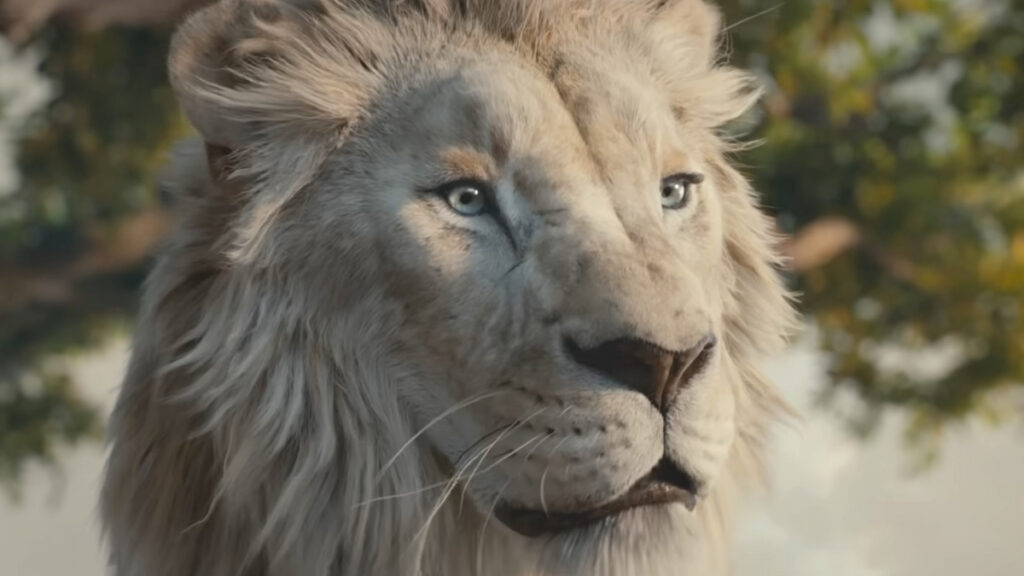
The realistic animation doesn’t work as well as it does in something like the Planet of the Apes movies. Most of the emotion comes from the voice performances rather than the emotions on the animal’s faces. It’s also a wild swing to see them talk and roar compared to seeing them sing. It feels unnatural and too cartoon-like. I did wonder if I would have enjoyed the movie more if it had been more traditionally animated instead. The voice performances were good, but Pierre can’t compare to James Earl Jones. Harrison Jr. was great as Taka, and so were the performances of the pair as cubs.
While the landscapes do look great, Mufasa: The Lion King keeps bumping up against its animated roots. There’s a scene near the beginning of the movie where a barren landscape is magically taken over by flowers and color. It looked fine in the film, but you can’t help but shake the feeling that such an imagined idea could have looked better in that classically animated style. The music was good, although it’s hard to compare the new songs to The Lion King classics we all know and love.
However, I can’t say that there were any earworms as within a few hours I’d already forgotten most of the songs. If I had to pick a favorite, the youthful ‘I Always Wanted a Brother,” written by Lin-Manuel Miranda (Hamilton), is pretty catchy. But, the nostalgic pings of the original The Lion King score by Hans Zimmer (Inception) landed harder than any other piece of music.
Lion to You
If you told me that I would have enjoyed Mufasa: The Lion King before going into it, I wouldn’t have believed you. The Lion King isn’t a film I endlessly rewatched as a child so I don’t have a strong affinity for the material. However, I didn’t find this film a waste of time, and I found myself entertained by it. It tugged at my heartstrings and made me chuckle. But it’s not memorable and won’t have a fraction of the staying power that the 1994 film has.
With all of that being said, the film is decently written, and it looks good despite not being traditionally animated. The voice cast is bringing their A-game and elevating the material, and they’re a large part of why the songs and plot lines work. I’d recommend Mufasa: The Lion King for any diehard fans of the franchise or anyone with children. Otherwise, just go rewatch The Lion King again and maybe wait for this one to land digitally so you can watch it at home.
You can watch Mufasa: The Lion King in theaters now.
Mufasa: The Lion King
Mufasa: The Lion King is an enjoyable film with a fine story and a fine soundtrack, that is actively fighting against its own animation style.
Pros
- A good voice cast elevates average material.
- The film’s story is heartfelt and at times funny.
Cons
- Between the environments and characters, it’s hard not to question why this wasn’t traditionally animated.
- The soundtrack is a little forgettable.
- Some of the turns feel too rushed, or unwarranted.

